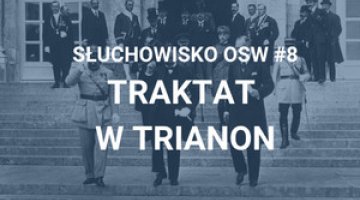The Czech nuclear tender: more units to be built, but without US participation
On 31 January, the Czech government adopted an annex to the documentation on the tender to expand the country’s nuclear energy sector (see ‘The Czech nuclear showdown enters the final straight’). It includes an invitation to the French EDF company and the South Korean KHNP company to submit by 15 April 2024 their binding bids to construct four units at Czech nuclear power plants. Both companies have already submitted their binding bids for the construction of the fifth unit at the Dukovany Nuclear Power Plant and non-binding bids for the construction of another three units (the sixth unit at the Dukovany NPP and the third & fourth units at the Temelín NPP). Following an analysis of the non-binding bids and in an attempt to significantly reduce the cost of the initiative (by 25% each unit), the government has decided to announce one tender for all four units. The deadlines for the tender procedure have also been postponed, as the ČEZ company, which considers the bids and was initially expected to present its recommendations to the government regarding the selection of the winning bid by mid-February, now has time until the end of May. The government is obliged to approve (or reject) the decision within a month of receiving it, and the agreements with the future contractor which will build the units must be ready by March 2025. Due to its failure to meet the formal requirements, including the non-submission of a binding bid to construct the fifth unit at the Dukovany NPP, the US-Canadian Westinghouse company has not been invited to take part in the tender.
Commentary
- The decision to exclude Westinghouse from the next stage of the tender came as a major surprise to the Czech public. On the day preceding the government’s decision, the American company signed an agreement with the Czech Power Industry Alliance on the possible involvement of Czech companies, concerning not only the expansion of the domestic nuclear energy sector but also Westinghouse’s projects in Poland, Bulgaria and Ukraine. The US-Canadian giant was viewed as the favourite because it was the only bidder which can manufacture units with the required capacity (1000–1200 MW). Most recent media reports suggest that the company was convinced of its strong position, a feeling which was additionally boosted by the prospects for its (and possibly for Czech subcontractors) undertakings in other states of the region, therefore had failed to show determination in its activities in the Czech Republic. Back in September 2023, it asked ČEZ to postpone the deadline for submitting bids by almost a month. Now, despite Prague’s clearly formulated requirement, Westinghouse failed to present a binding bid. It may have been uncertain about the punctual execution of the contract in the light of its other, bigger contracts in the region.
- The present front-runner is the French bid, whose selection could in some way strategically offset the Czech Republic’s purchase of 24 F-35 fighter jets on the basis of an intergovernmental agreement with the US administration, the biggest military contract in Czech history. Although the Korean bid is viewed as the most attractive as regards the price, and their project is more technologically advanced than the French one, the KHNP has had an unresolved legal dispute with Westinghouse over intellectual property in the field of nuclear energy (the court of arbitration is expected to issue its final decision as late as the end of 2025). The Czech media has emphasised that choosing the EDF could consolidate the country’s links with its NATO and EU ally, and that Paris’s support could be helpful in Prague’s efforts to get the green light from the European Commission after notifying it of its plan to build new units (in compliance with the EU’s state aid procedures). Paris and Prague have cooperated at the EU level to promote the view that nuclear energy is as ‘clean’ as RES.
- The decision to accelerate the expansion of the Czech nuclear energy sector (by four new nuclear units instead of one) results from anticipation of a surge in demand for electricity, and has received backing from the country’s main opposition party ANO. According to the national climate & energy strategy, by 2050 the demand for electricity will rise by two thirds compared with the present figure, that is to 100 TWh. This forecast takes into account the changes resulting from the development of electromobility, the ongoing electrification of the heating sector and the gradual phase-out of coal power. In line with the government’s expectations, of the power plants currently operational the Temelín NPP alone will continue to operate in 2050. ANO’s support is of major importance in the context of the expected change in government following the parliamentary elections scheduled for autumn 2025.





